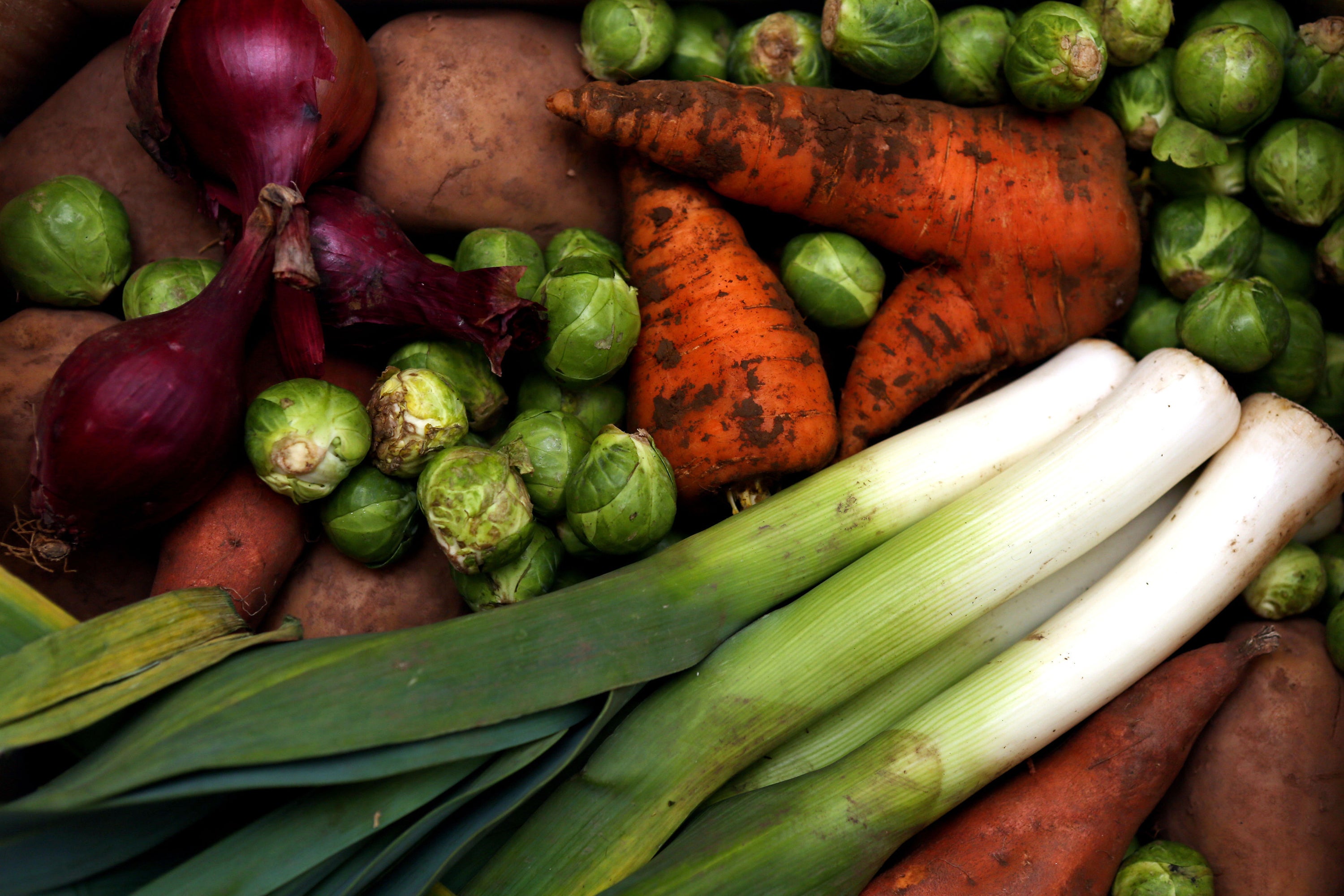Britons going vegetarian to save money as cost-of-living crisis bites
Meat sales in free-fall as hard-up families look to reduce food bills amid spiralling prices

Your support helps us to tell the story
From reproductive rights to climate change to Big Tech, The Independent is on the ground when the story is developing. Whether it's investigating the financials of Elon Musk's pro-Trump PAC or producing our latest documentary, 'The A Word', which shines a light on the American women fighting for reproductive rights, we know how important it is to parse out the facts from the messaging.
At such a critical moment in US history, we need reporters on the ground. Your donation allows us to keep sending journalists to speak to both sides of the story.
The Independent is trusted by Americans across the entire political spectrum. And unlike many other quality news outlets, we choose not to lock Americans out of our reporting and analysis with paywalls. We believe quality journalism should be available to everyone, paid for by those who can afford it.
Your support makes all the difference.It is a life-style choice generally inspired by environmental concerns, animal welfare convictions and health motivations.
Now, it seems, more Britons may be turning to vegetarianism for a rather different reason: because they cannot afford meat as the growing cost-of-living crisis takes hold.
Summer figures show demand of various cuts is already in free-fall as people tighten belts with lamb and beef sales down by 23.7 per cent and 13.7 per cent respectively.
Now, the Vegetarian Society says it is experiencing a massive surge in interest as families worry about how they will afford spiralling energy and food costs this winter. Web traffic and calls to the organisation have increased by an estimated 50 per cent over the summer with its recipe pages seeing a particular rise in visitor numbers.
It estimates tens of thousands of Britons will move towards sustainable eating this winter as a result of teh financial squeeze.
“There are still all the traditional motivations for people getting in touch – like animal welfare and environmental reasons – but certainly, anecdotally, what we are hearing is that people who perhaps ordinarily wouldn’t have considered a vegetarian or vegan diet are now doing so for economic reasons,” said Richard McIlwain, chief executive of the society.
He added that many young people – who had perhaps been considering the life-style change previously for climate reasons – were now using the economic crisis as a final motivation for “jumping over the line” to sustainable eating.
“I think we’ll be looking at tens of thousands of people moving to - or at least experimenting with - vegetarian and vegan diets over the next few months,” he said. “What I would say to them all is that this doesn’t have to feel like a sacrifice. There is a food adventure waiting out there for you, and there is so much to explore that is flavoursome and tasty and healthy. There is more to the supermarkets than carrots, broccoli, and a cut of meat.”
An Oxford University study has previously found that a balanced vegetarian or vegan diet in the UK can be as much as a third cheaper than a meat diet. Even a flexitarian diet can reduce household food bills by 14 per cent, found the research which was published last winter.
The savings come because staples such as chickpeas, pulses, beans and lentils – which have similar protein values to meats – are considerably cheaper.

Maya Finley, a 24-year-old accountant, is among those who have already made the switch on cost grounds.
She and partner Jack Hughes, 28, went vegetarian earlier this year after moving in together in Lincoln.
“Our weekly food bill now - excluding alcohol - is £25 for both of us,” she said. “We tend to bulk buy lentils and beans to make things even cheaper but mainly it’s just lots of vegetables and fruit. It’s pretty amazing how you can bring it down once you take meat - and meat substitutes - away.”
Would she go back? “Never say never but, just from a financial point of view, not in the short term. And we eat well. The meals we make are really enjoyable. I don’t feel like we’re missing out on anything.”
Mother-of-two Kirsty Ferguson, from Bradford, meanwhile, went flexitarian at the start of the summer to keep meal costs down. Once her two sons - aged 12 and 14 - leave home, she said, “I don’t think they’ll ever have lentils again”.
When the family do have meat, she says it tends to be cheaper cuts. “We’ll have chicken portions instead of chicken breast,” the charity worker says. “Anything that stretches your money further.”
In July, year on year figures, compiled by analysts Kanta showed beef sales were down by 13.7 per cent, pork by 10.6 per cent , and chicken by 9.7 per cent. Lamb, meanwhile was down by a massive 23.7 per cent. Fish, too, had fallen, by 11.6 per cent.
The Vegan Society said that, while the cost-of-living crisis, was “devestating”, it was “encouraging to see more people open to reducing meat”.
A spokesperson said: “Seeking plant-based options are beneficial for health and, as a welcome bonus, stretch your money further.”




Join our commenting forum
Join thought-provoking conversations, follow other Independent readers and see their replies
Comments